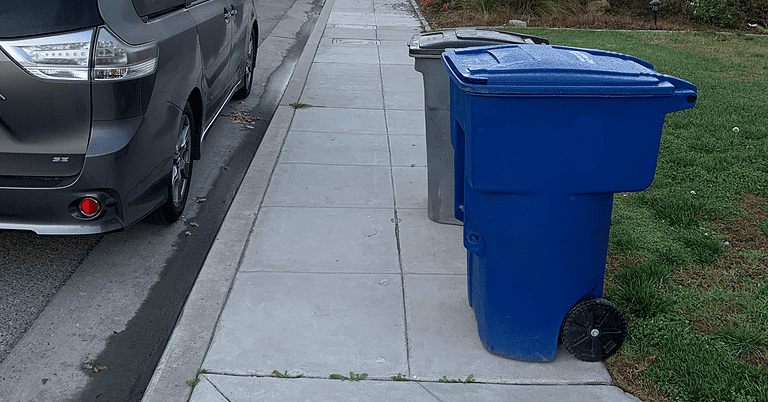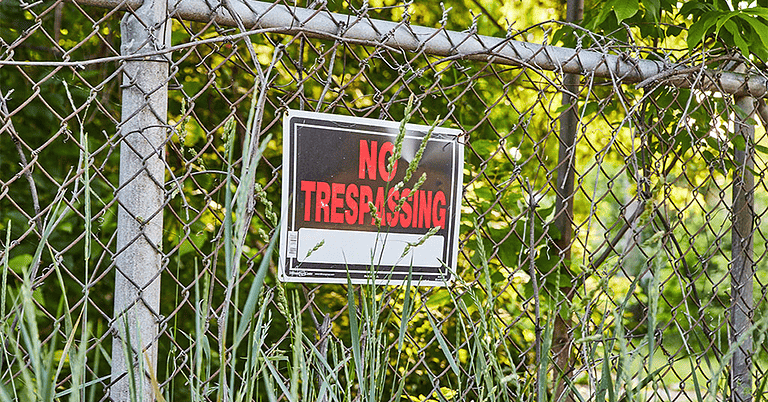Can HOA Kick You Out
Are you concerned about the authority of your Homeowners Association (HOA) when evicting residents? Well, fear not! In this article, we will explore the powers and limitations of an HOA regarding eviction.
You’ll gain a deeper understanding of common violations that may lead to severe consequences and learn how to navigate the legal landscape surrounding HOAs.
So, if you’re wondering whether your HOA can kick you out, keep reading for expert insights and practical tips to avoid such situations. (Learn How Long Does An HOA Have To Respond)
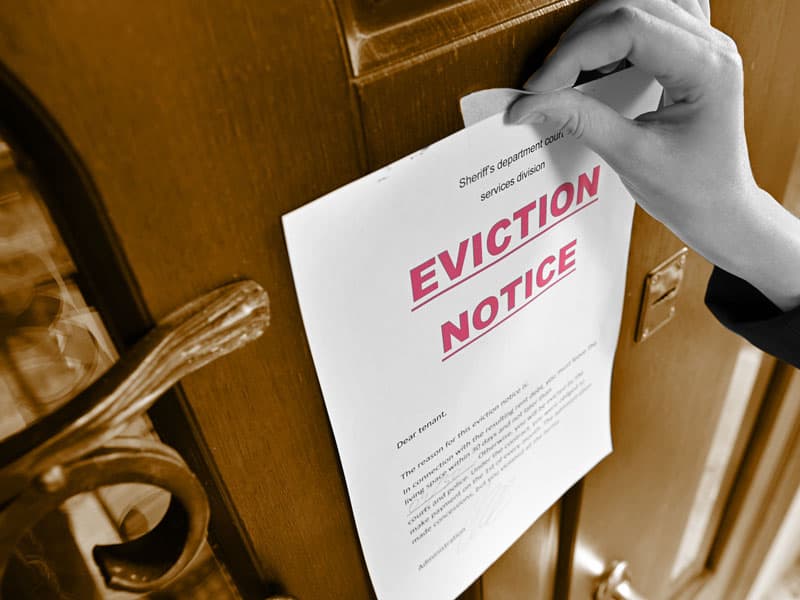
Understanding the Powers of an HOA: Can they Evict a Homeowner?
Are you curious about the powers of a homeowners association (HOA) and whether they can evict you from your home?
This discussion will establish what an HOA is and explore its standard rules. We’ll also investigate if an HOA can evict a homeowner and define key terms such as eviction, HOAs, and homeowners’ rights.
Additionally, we’ll demystify common myths surrounding an HOA’s powers and examine possible instances when an HOA might take drastic measures.
Establishing What an HOA is and its Common Rules
HOAs can enforce rules through fines and may foreclose on a property if fines are not paid. However, it’s important to note that HOAs cannot evict homeowners like landlords can evict tenants.
While HOAs can impose fines and penalties for rule violations, eviction is not within their legal power. The role of the HOA is to maintain community standards and ensure compliance with the association’s rules and regulations, not to kick homeowners out of their homes.
Investigating if an HOA can Evict a Homeowner
Investigating if an HOA can evict a homeowner may provide clarity on the extent of their legal powers. While an HOA has the authority to enforce rules and impose fines, they cannot evict homeowners like landlords can evict tenants.
It’s important to understand that an association cannot evict you solely based on personal dislike or for making noise. However, there may be consequences for non-compliance with HOA rules, such as late fees or foreclosure.
Seeking legal advice can help you navigate any disputes or challenges with the HOA.
Defining Key Terms: Eviction, HOAs, and Homeowners’ Rights
Understanding the critical terms of eviction, HOAs, and homeowners’ rights can help clarify your legal position and navigate any disputes with the association. While an HOA has the authority to enforce its rules and regulations, including imposing fines for violations, it cannot simply ‘kick out’ a homeowner.
When a homeowner consistently violates association rules or fails to pay dues, the HOA may pursue legal action to foreclose on the property. (Read Can HOA Prohibit Smoking)
Demystifying Common Myths About HOA’s Powers
Demystifying common myths about the powers of homeowners’ associations can provide a clearer understanding of their authority.
One common misconception is that HOAs have the power to evict homeowners. However, this is not true. HOAs cannot evict homeowners from their properties. They can enforce rules through fines and penalties, but eviction requires written approval from the association board and must follow correct procedures.
In extreme cases, an HOA can put a lien on a property for non-compliance with HOA rules.
Examining Possible Instances When an HOA Might Take Drastic Measures
If faced with severe and repeated violations, an HOA may resort to more extreme measures such as foreclosure or legal action. While an HOA has the authority to enforce its rules and bylaws, it cannot directly evict a tenant.
The association can hold homeowners accountable for their tenants’ actions and pressure them to take action. However, HOA board members must act in good faith, following proper procedures when dealing with common HOA violations.
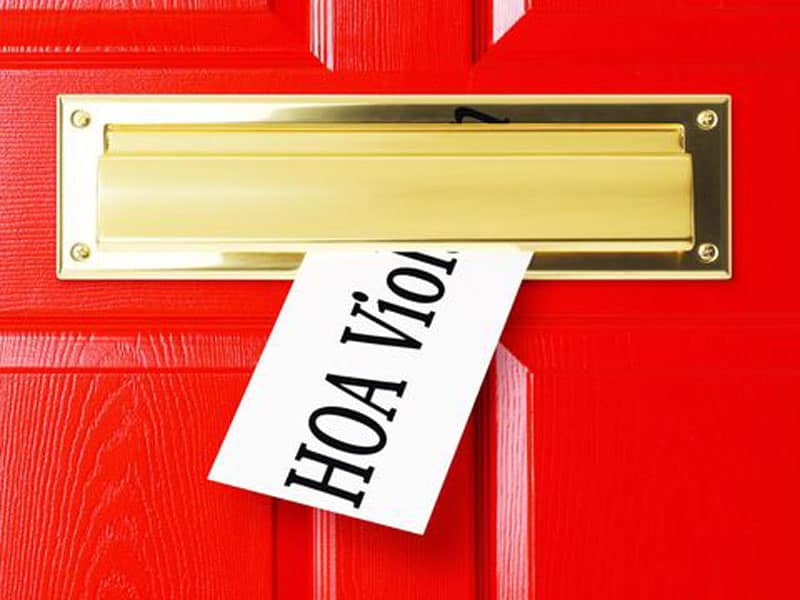
Common HOA Violations That May Lead to Serious Consequences
If you live in a community governed by a homeowners association (HOA), it’s essential to understand what constitutes an HOA violation and the potential consequences.
HOA violations can range from minor infractions to more serious offenses, and they often come with fines that can quickly accumulate. Exploring real-life cases of HOA violations leading to severe consequences can provide valuable insights into the process from infringement to legal action while also allowing for an evaluation of the severity of different types of breaches.
Understanding What Constitutes an HOA Violation
HOA violations can result in fines and potential foreclosure if not addressed by homeowners. HOA members must understand their governing documents and the consequences of breaking HOA rules. Failure to pay association fees or resolve violations can negatively impact property value and make it difficult to sell your home. If you’re facing financial hardship, communicate with your HOA and explore options for repayment plans or fee deferrals.
The Connection between HOA Violations and Fines
When it comes to HOA violations, understanding the connection between violations and fines is crucial for homeowners like yourself. HOAs have rules in place to maintain the integrity of the community and ensure a harmonious living environment. They enforce these rules by imposing fines on homeowners who fail to abide by them.
However, it’s important to note that an HOA cannot simply kick you out of your home for violating their rules. As a homeowner, you can appeal any violation and seek resolution before eviction becomes necessary.
Exploring Real-life Cases of HOA Violations Leading to Serious Consequences
Understanding the real-life cases of HOA violations can shed light on the severe consequences that homeowners may face. Knowing that the HOA cannot evict you from your home is essential. As a homeowner in an HOA, you are not liable for eviction.
However, if you fail to comply with the rules and regulations set by the HOA, they have the power to enforce fines and potentially foreclose on your property. Homeowners may wish to avoid these consequences by paying their HOA fees and following the rules set forth by their association. (Read Why Are HOA Fees So High)
Analyzing the Process from HOA Violation to Legal Action
Analyzing the process from an HOA violation to legal action can provide insight into the steps that the association may take. When a homeowner or tenant violates HOA rules, the association may begin with communication and attempts to find a solution.
Legal action may be pursued following local laws and procedures if the violation persists. Homeowners must be aware of their involvement in resolving any potential eviction process and seek legal advice if necessary.
Evaluating the Severity of Different Types of HOA Violations
To evaluate the severity of different types of HOA violations, it’s essential to consider their potential consequences and impact on your community. It’s important to note that while an HOA cannot evict, a homeowner, like a landlord, can evict a tenant; they have the authority to enforce rules through fines and take legal action against property owners.
Some states allow HOAs to force a homeowner to comply or terminate a lease if a tenant violates HOA rules. Understanding the rules that govern your specific HOA is crucial in navigating these situations.
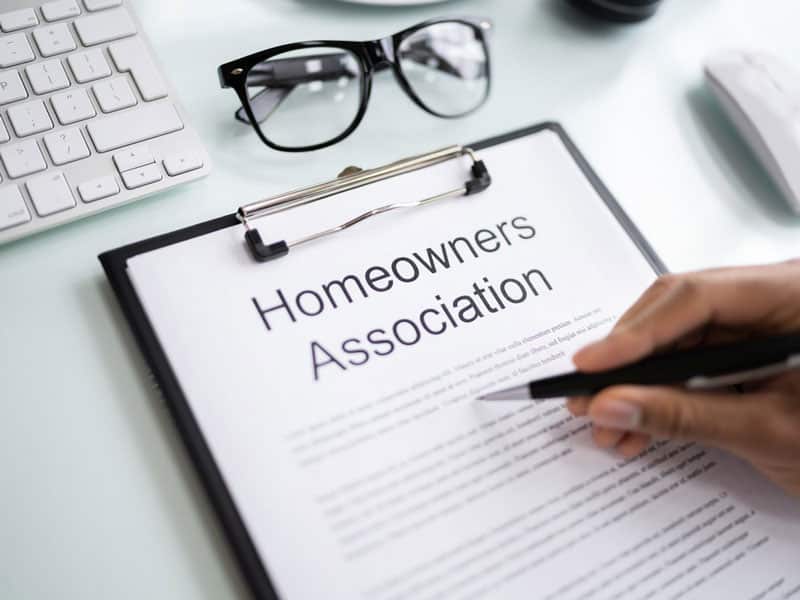
The Consequences of Disobeying Your HOA’s Rules
When living in a community governed by a homeowners association (HOA), it’s essential to understand the consequences of ignoring the rules and regulations.
Failure to comply with HOA rules can lead to fines, penalties, and potential eviction. In this discussion, we’ll explore the line between HOA fees and fines, real-life cases of disobeying HOA rules, how far an HOA can go in penalizing homeowners, and your rights regarding understanding your HOA’s lien and foreclosure rights.
It’s crucial to be knowledgeable about these topics to maintain a harmonious relationship with your HOA and avoid unnecessary complications or disputes.
Consequences of Ignoring HOA Rules and Regulations
Ignoring HOA rules and regulations can result in penalties such as late fees, interest charges, and even foreclosure if unpaid fees or violation fines accumulate.
It’s important to remember that homeowners associations (HOAs) cannot evict you from your home, but they may have the authority to evict tenants who violate the rules.
However, tenants must still pay any fines or fees imposed by the HOA. Understanding state or local laws regarding eviction and ensuring compliance with them is crucial.
The Line Between HOA Fees and Fines: What You Need To Know
Understanding the distinction between HOA fees and fines is essential to navigate the regulations and avoid potential penalties.
It’s important to know that the HOA could force you, rather than the tenant, to pay fines for violations. However, the tenant receives a different treatment when it comes to fees. They would not have to pay HOA fees directly; it is typically the homeowner’s responsibility.
Remember that there may even be restrictions or noise ordinances regarding tenants’ behavior.
Real-Life Cases of Disobeying Homeowners Association’s Rules
Now that you understand the line between HOA fees and fines, let’s look at some real-life cases of homeowners disobeying their association’s rules. It’s important to remember that the success of a community relies on everyone following the established guidelines.
How Far Can an HOA Go in Penalizing Homeowners?
To avoid potential consequences, homeowners must know how far an HOA can go in penalizing residents. HOAs can enforce rules through fines and may even foreclose on a property if fines are not paid.
However, it’s important to note that HOAs cannot evict homeowners like landlords can evict tenants. Homeowners have more rights than tenants because they own the home, but they should still take any violations seriously and work towards resolving issues with the HOA. (Read Wasp Bomb For Under Deck)
Understanding Your HOA’s Lien and Foreclosure Rights
Ensure you know your HOA’s lien and foreclosure rights to understand the consequences of non-payment or rule violations. Your HOA can place a lien on your property if you fail to pay fees, fines, or assessments. In extreme cases, they may foreclose on your home.
Communicating with your HOA, seeking solutions, and adhering to correct procedures are essential. Remember that legal advice can help navigate these situations.
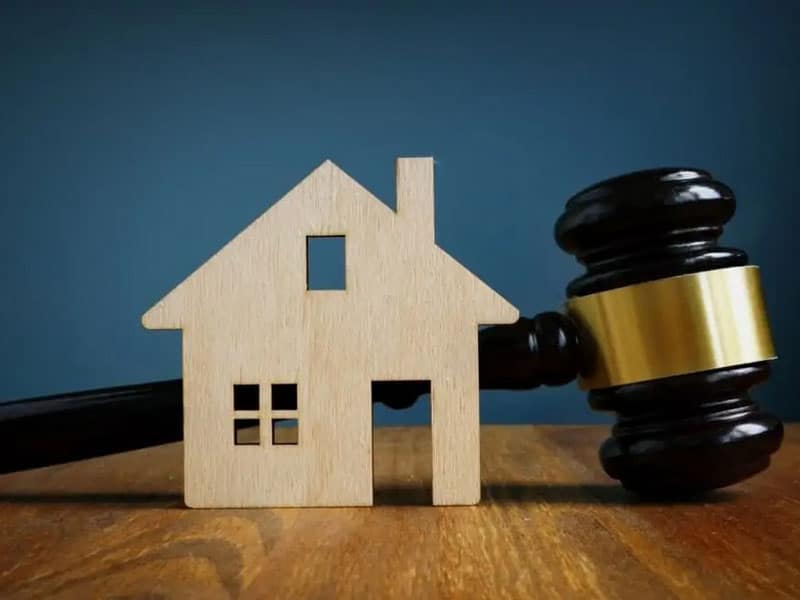
The Legal Limitations of an HOA: When They Can’t Kick You Out
In this discussion, you’ll learn about the homeowner’s protection rights against an HOA and how to evaluate them. You’ll also identify situations where the HOA cannot evict a homeowner and understand the boundaries between the association’s rules and the law.
Additionally, you’ll explore your defense options against HOA eviction and learn about legal recourses when the HOA crosses the line. Knowing about these topics is essential to protect your rights as a homeowner in dealing with an HOA.
Evaluating the Homeowner’s Protection Rights Against an HOA
You have the legal right to enforce covenants against non-compliant homeowners or the HOA. As a homeowner, knowing your rights and protections is essential when dealing with an HOA.
You can appeal decisions or seek rule changes through the association board or homeowner vote. Maintaining open communication and cooperation with the HOA is crucial to resolve any issues before eviction becomes necessary.
Seek legal advice if needed for guidance throughout this process.
Identifying Situations Where the HOA Cannot Evict a Homeowner
The HOA lacks the authority to remove a resident from their home. As a homeowner, it’s essential to understand your rights and know that eviction is not within the HOA’s power. The HOA can enforce rules through fines and may even pursue foreclosure if necessary, but they cannot physically evict you.
If you face any issues with your HOA, it is advisable to seek legal advice and explore options for resolving conflicts fairly and lawfully.
Understanding the HOA’s Boundaries: The Association’s Rules vs Law
Understanding the HOA’s boundaries means recognizing the distinction between the association’s rules and the law. The HOA has the authority to enforce its rules but must also operate within legal limits. While the HOA can impose fines and take action against rule violators, it cannot evict homeowners without following proper legal procedures.
Knowing your rights as a homeowner and seeking legal advice is essential if you believe the HOA is overstepping its boundaries.
Learning About Your Defense Options Against HOA Eviction
Discovering your defense options against HOA eviction is crucial in protecting your rights as a homeowner. It’s important to understand that HOAs can evict homeowners if authorized by governing documents and state laws. However, you can take steps to appeal decisions or seek changes to unfair rules through the board or homeowner vote. Adhering to correct procedures and seeking legal advice will help ensure your rights are protected throughout the process.
Exploring Legal Recourses when the HOA Crosses the Line
If you believe your HOA has overstepped its boundaries or crossed the line, it is essential to explore your legal recourses.
By seeking professional advice and understanding your rights, you can take appropriate action to protect yourself.

Dealing with an HOA: Tips to Avoid Getting Kicked Out
Are you a homeowner or tenant in an HOA community? If so, it’s essential to understand how to deal with your HOA board and members effectively.
This discussion will provide tips on managing HOA fees and fines to avoid trouble and a step-by-step guide on resolving HOA violations with minor conflicts. Additionally, we’ll explore the importance of understanding the written approval process and governing documents set forth by your HOA.
How to Deal Effectively with Your HOA Board and Members
When dealing with your HOA board and members, it’s essential to maintain open lines of communication and strive for cooperation. Building a positive relationship with your HOA can help resolve issues effectively.
Be knowledgeable about the rules and regulations set by the HOA to ensure compliance. Stay engaged in community meetings and discussions to voice your opinions or concerns.
Understanding Your Responsibilities as a Tenant in an HOA Community
Understanding your responsibilities as a tenant in an HOA community is essential for maintaining a harmonious living environment. As a tenant, it’s crucial to familiarize yourself with the association’s rules and regulations.
This includes following guidelines regarding noise levels, parking, and property maintenance. By respecting these responsibilities, you contribute to the community’s overall well-being and help create a positive living experience for yourself and your neighbors.
Managing HOA Fees and Fines: Tips to Avoid Getting in Trouble
Now that you understand the responsibilities of being a tenant in an HOA community knowing how to manage your HOA fees and fines is essential to avoid getting into trouble.
Paying your fees on time and following the association’s rules is crucial to maintain a harmonious living environment.
Please get in touch with your landlord or the HOA board for clarification and assistance if you have any questions or concerns about the fees or fines.
Resolving HOA Violations With Least Conflict: A Step-by-Step Guide
To resolve HOA violations with minor conflicts, familiarize yourself with the association’s rules and regulations.
Reach out to the board or management for guidance on addressing the violation. They can inform you ofof the proper steps and potential consequences.
Understanding The Importance of HOA’s Written Approval and Governing Documents
Familiarize yourself with the importance of obtaining written approval from the HOA and understanding the governing documents.
It is crucial to clearly understand the rules and regulations set forth by the HOA to avoid any potential conflicts or misunderstandings. Written approval ensures that you follow all necessary procedures and guidelines, promoting a harmonious relationship between homeowners and the association.
Understanding these governing documents is critical to maintaining a positive living environment within your community.
Conclusion
In conclusion, it is essential to understand the authority and limitations of Homeowners Associations (HOAs) when evicting residents.
While HOAs have the power to foreclose on a property in certain circumstances, they usually strive for communication and resolution before resorting to eviction. Homeowners have rights, such as appealing decisions or requesting rule changes through voting.
Non-compliance with HOA rules can result in consequences like late fees or foreclosure. Both residents and the HOA must maintain open lines of communication and work together to create a harmonious community.



